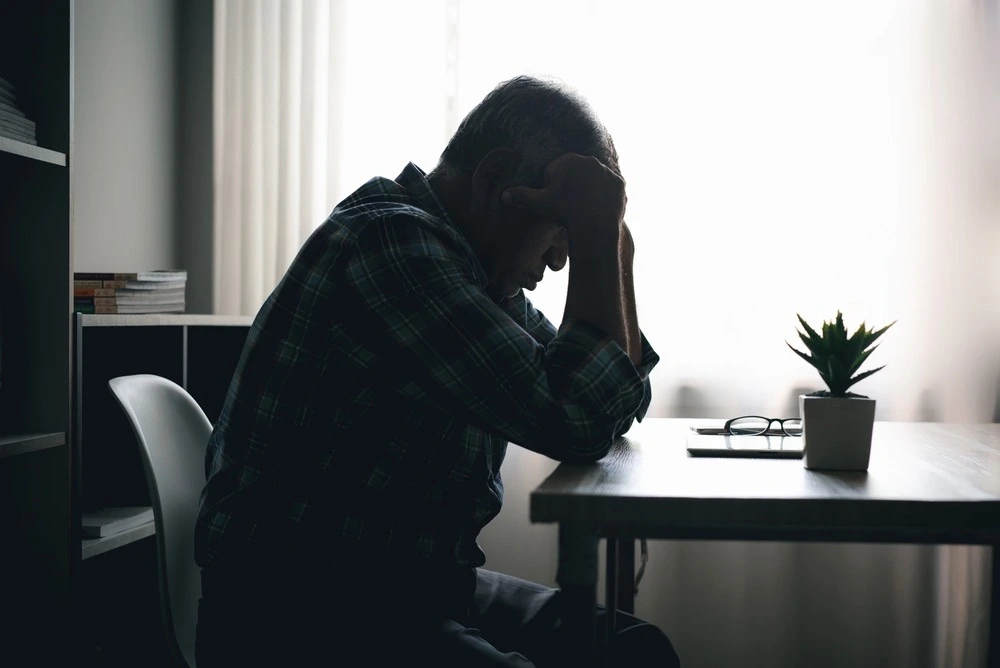Understanding the Marchman Act Criteria: Key Points for Involuntary Substance Abuse Treatment

To invoke the Marchman Act for a loved one, understanding the criteria is crucial. In Florida, the law requires clear evidence of substance abuse impairment and a profound inability to choose treatment independently.
What the Marchman Act Requires:
- Substance Abuse: The individual’s substance abuse must be severe enough to impair their judgment and ability to recognize their need for help.
- Risk of Harm: There must be a substantial likelihood they will harm themselves or others due to their substance abuse.
- Inability to Make Rational Decisions: The person must be unable to make informed decisions about their own care and treatment.
Proving Your Case: Why You Need a Lawyer
Demonstrating that these criteria are met requires evidence and persuasive legal arguments. An experienced Marchman Act attorney knows how to build a strong case that protects your loved one’s rights and maximizes their chances of getting the treatment they desperately need.
Astor Simovitch: Advocating for Your Loved One’s Well-Being
If you believe your loved one meets the Marchman Act criteria, don’t delay. Schedule a consultation with Astor Simovitch to discuss your situation and explore your legal options.
Key Takeaways
- The Marchman Act enables involuntary substance abuse treatment for individuals with severe impairment and lack of self-control due to substance misuse, regardless of age, and includes a thorough assessment process to establish eligibility.
- Initiating the Marchman Act process requires filing a Petition for Involuntary Assessment and Stabilization, which can be done by various parties including family, health professionals, and legal guardians, and must be substantiated with strong evidence.
- The Marchman Act includes mechanisms for both involuntary and voluntary admissions for treatment, with specific provisions to protect the rights of individuals, ensure their safety, and address their needs in the least restrictive environment possible.
Eligibility Requirements for the Marchman Act

The eligibility criteria for the Marchman Act are twofold: substance abuse impairment and a lack of self-control regarding substance use. For an individual to qualify for involuntary assessment, it is necessary to genuinely believe that they are not just substance abuse impaired, but they have also lost control over their substance use. Habitual abusers, those who put themselves or others at physical risk, or individuals who are incapable of making rational decisions about their need for treatment are often seen to be substance abuse impaired.
Interestingly, the Marchman Act does not discriminate based on age. Both adults and youth who are severely impacted by substance abuse impairment can be considered for Marchman Act procedures, with specific provisions for minors.
When it comes to self-control, or lack thereof, an inability to abstain from substance use or a lack of recognition of the substance use problem is key. How then, can we distinguish substance abuse impairment and a lack of self-control? Allow us to delve further into these concepts.
Identifying Substance Abuse Impairment
Substance abuse impairment is a condition that results in mental, emotional, or physical problems, and socially dysfunctional behavior due to the misuse of alcohol or other substances. It’s a complex issue, often intertwined with mental illness, and identifying it involves more than just recognizing a pattern of substance use. It requires a thorough assessment of an individual to confirm the severity of the substance issue and the need for intervention.
Such an assessment takes into account a myriad of factors, ranging from the individual’s physical health status to their social interactions and mental health. The goal is to present a comprehensive picture of the impact of substance use on the individual’s life. This information plays a significant role in determining if they meet the criteria for substance abuse impairment under the Marchman Act and, as a result, if they qualify for involuntary assessment and treatment.
Determining Lack of Self Control
The second part of the eligibility puzzle under the Marchman Act is determining whether an individual has a significant lack of self-control related to substance use. This is evident when an individual continuously uses substances despite being aware of the likely negative consequences. In other words, the individual is unable to stop using substances even when it leads to negative outcomes.
This loss of self-control goes beyond just a willpower issue – it points to a deeper, more serious problem. Under the Marchman Act, the inability to abstain from substance use is part of the criteria for involuntary admission. Demonstrating these behaviors is crucial in establishing whether an individual qualifies for involuntary assessment and treatment under the provisions of the Marchman Act.
Initiating the Marchman Act Process

Once an individual is deemed eligible under the Marchman Act, the next step is to initiate the process. It begins with filing a Petition for Involuntary Assessment and Stabilization at the Clerk of Court’s office. This legal document serves to evaluate the need for help and assess the legitimacy of the concerns raised.
Who has the right to file this petition? What kind of evidence is required to back it up? These are significant details that require thoughtful consideration. After all, the success of the Marchman Act process largely depends on the accuracy of the petition and the credibility of the evidence provided.
Who Can File a Petition?
The Marchman Act allows for a range of individuals to file a petition. This includes:
- Blood relatives
- Spouses
- Legal guardians
- Friends
In the absence of a blood relative or a person’s spouse, three unrelated concerned adults who have personal knowledge of the individual’s substance abuse issues may also file the petition.
Other eligible parties include sheriffs, directors of licensed service providers, private practitioners, and treatment center representatives. A minor’s case is unique, however. The Marchman Act petition for a minor can only be filed by parents, legal guardians or custodians, or a director of a licensed service provider. This ensures that the minor’s welfare remains a priority throughout the process.
Collecting Evidence for the Petition
Gathering evidence to back the Marchman Act petition is an essential step. The petitioner must present sworn written testimony confirming the subject’s substance abuse impairment and need for involuntary assessment. This includes evidence of impaired judgment and refusal to care for themselves.
Signs of eligibility for the Marchman Act include the person’s substance misuse leading to an inability to recognize the need for treatment, or posing a risk or causing actual physical harm. To help individuals navigate this process, an instructional packet is available. This guide walks them through the process of completing and submitting Marchman Act petitions and addresses frequently asked questions.
Involuntary Assessment and Stabilization Under the Marchman Act

Once a petition is filed and approved, the next phase under the Marchman Act is involuntary assessment and stabilization. This process is designed to assess the extent of the individual’s substance abuse impairment and provide immediate help. Licensed service providers play a key role in this process, conducting the assessment and providing the necessary stabilization services.
The individuals eligible for this stage are those believed to be impaired by substance abuse and lacking self-control due to their impairment. After the initial assessment and stabilization, a treatment facility may file a petition for court-ordered treatment if further intervention is determined to be necessary. This brings us to the role of licensed service providers and the criteria for emergency admission.
The Role of Licensed Service Providers
Licensed service providers are key players in the Marchman Act process. They include health professionals and therapists who conduct the crucial emergency assessment for substance abuse services. After a judge approves a Marchman Act petition, the licensed service provider must submit a written assessment to the court within five days, determining if involuntary commitment is beneficial for the individual.
The assessment by licensed service providers is comprehensive, taking into account all aspects of the individual’s life affected by substance abuse. This information is used to create a tailored treatment plan that addresses the specific needs of the individual under the Marchman Act.
Criteria for Emergency Admission
For an individual to be considered for emergency admission under the Marchman Act, they must be in danger of harming themselves or others as a result of substance abuse, or be incapable of appreciating the need for substance abuse services due to impairment. A completed Certificate of Professional for Emergency Assessment for Substance Abuse Services (CF-MH 4057) is a required document in the emergency admission process.
During emergency admission, individuals are initially held for a 72-hour evaluation to determine the risk they pose to themselves or others. If an Order for Involuntary Assessment and Stabilization is issued, the assessment must happen within these 72 hours, and the stabilization involuntary treatment period cannot go beyond 5 days. These measures ensure swift intervention and immediate assessment and stabilization for individuals who likely meet the requirements for involuntary admission.
Court-Ordered Treatment Services: Understanding the Legal Criteria

Once the assessment is complete and the need for further intervention is established, the next step is court-ordered treatment. In the Marchman Act, the term ‘incompetent to consent to treatment’ applies to individuals whose judgment is so impaired by substance abuse that they are incapable of making informed decisions about their own treatment.
To ensure that these individuals receive the necessary care, a court order can be obtained for involuntary substance abuse treatment. What are the steps to secure a court order? What’s the duration and conditions of court-ordered treatment? Let’s explore these aspects in detail.
Obtaining a Court Order for Treatment
Obtaining a court order for treatment involves the following steps:
- Filing an Ex Parte Petition under the Marchman Act
- Including sworn written testimony fulfilling the criteria outlined in Florida law
- Once the written assessment is received, a treatment hearing is convened within 10 days
- The magistrate may order up to 90 days of involuntary addiction treatment based on the findings of this hearing.
In addition to the petition, the petitioner is required to provide health insurance information of the individual, if available, and to indicate whether the individual is a veteran or receiving military benefits. This information plays a significant role in planning the financial aspects of the treatment.
Duration and Conditions of Court-Ordered Treatment
The duration and conditions of court-ordered treatment are determined based on an individual’s assessment results. After the assessment, a second petition is filed to move the individual into a treatment program, which specifies the length and conditions of treatment.
The goal is to create a treatment plan that is both effective and feasible for the individual. This ensures that they receive the help they need within a timeframe and under conditions that are conducive to their recovery.
Comparing Voluntary and Involuntary Admissions
The Marchman Act includes provisions for both voluntary and involuntary admissions, each with its own procedures and implications. Voluntary admission occurs when an individual willingly consents to psychiatric treatment, while involuntary admission involves a legal process where an individual is committed against their will based on criteria such as being a danger to themselves or others.
Interestingly, the same criteria required for involuntary admissions are applied to non-court procedures under the Marchman Act, both of which can lead to involuntary admissions. Those seeking voluntary admission for substance abuse services under the Marchman Act must complete a specific application form (CF-MH 4007 Oct 2018). Upon voluntary admission, they are informed of their right to request discharge using a designated notice form (CF-MH 4008 Oct 2018). The main distinction lies in the fact that patients who are admitted voluntarily can leave against medical advice, in contrast to those who are involuntarily admitted and cannot leave during the mandated evaluation period.
Furthermore, a patient’s status may change from involuntary to voluntary if they agree to treatment after being committed, providing an avenue for individuals to partake in decision-making regarding their care.
Protecting Rights and Ensuring Safety

While the Marchman Act provides a legal framework for involuntary treatment, it also places a high priority on protecting the rights and ensuring the safety of individuals. Marchman Act proceedings are overseen by a General Magistrate, emphasizing a legal framework focused on non-criminal adjudication for substance abuse cases.
Under the Marchman Act, individuals are protected by safeguards like:
- the right to legal representation
- the right to be heard in court
- the opportunity for a second opinion
- the ability to request a contempt hearing for treatment order violations
The Drug Services Act also emphasizes treatment in the least restrictive environment and explicitly protects a range of statutory rights, including confidentiality, dignity, and nondiscrimination. Safety protocols include provisions for protective custody and emergency admission to protect both substance-impaired individuals and the public, particularly addressing the needs of minors.
Despite the protective measures and interventions, the Marchman Act faces challenges like limited treatment resources, ethical issues surrounding involuntary treatment, and societal stigma associated with substance abuse.
Navigating Non-Court Procedures for Involuntary Services
While court procedures under the Marchman Act are common, there are also non-court procedures that can be utilized for involuntary service placement. These include:
- Protective Custody: law enforcement can take an intoxicated or substance-impaired person from a public place to a safer environment for assessment
- Emergency Admission: allows for the temporary detention and assessment of a person who appears to meet the criteria for involuntary services
- Alternative Involuntary Assessment for Minors: provides a process for the assessment and treatment of minors who are substance-impaired or intoxicated
These non-court procedures offer alternative options for addressing substance abuse issues.
To qualify for an emergency assessment for substance abuse services, a Certificate of Professional must be filled out as per the mandatory forms provided by the Florida Department of Children and Families, in accordance with the Florida Mental Health Act. The Report of Law Enforcement Officer Initiating Protective Custody (CF-MH 4002) supports the criteria under which law enforcement can initiate protective custody for emergency admission related to the Marchman Act.
For minors, a parent, legal guardian, or custodian can admit the minor for professional assessment of the need for treatment using the Alternative Involuntary Assessment procedure. These non-court procedures provide options for immediate intervention when court proceedings may be too time-consuming or not feasible.
Alternatives to the Marchman Act
While the Marchman Act is influential, it’s not the sole mechanism for dealing with substance abuse issues. Professional intervention specialists provide a pathway for families to address addictive behaviors without resorting to legal measures. Intervention includes preparing the individual struggling with addiction and their family for making informed decisions related to long-term recovery.
By highlighting the potential consequences of not seeking help, families create a scenario where the addicted person might agree to undergo treatment voluntarily before a crisis ensues. This approach promotes personal agency and responsibility in the recovery process, offering an alternative to the coercive nature of the Marchman Act.
Summary
The Marchman Act, with its provision for involuntary assessment and treatment for individuals significantly impaired by substance abuse, serves as a powerful tool in the fight against addiction. Understanding its eligibility criteria, process, and legal framework is crucial for those considering its use. However, it’s equally important to recognize the rights and safety protocols in place to protect individuals, as well as the alternatives that exist outside of this Act. Remember, the ultimate goal is to help those struggling with substance abuse to regain control of their lives and embark on the path to recovery.
Frequently Asked Questions
Who can file a Marchman Act petition?
Any blood relatives, spouses, legal guardians, friends, law enforcement, treatment center representatives, or three unrelated concerned adults with personal knowledge of the individual’s substance abuse issues can file a Marchman Act petition. This allows for a broad range of individuals to seek help for someone struggling with substance abuse.
What is the role of licensed service providers in the Marchman Act process?
Licensed service providers, such as health professionals and therapists, are responsible for conducting the emergency assessment for substance abuse services and submitting a written assessment to the court within five days of a judge’s approval of a Marchman Act petition. This ensures timely and professional evaluation during the process.
What’s the difference between voluntary and involuntary admissions under the Marchman Act?
The main difference between voluntary and involuntary admissions under the Marchman Act is that voluntary admission involves willing consent to treatment, while involuntary admission is a legal process for individuals committed against their will, based on specific criteria. This ensures that the individual’s decision-making capacity is respected while also addressing concerns for their well-being.
How are the rights and safety of individuals protected under the Marchman Act?
The rights and safety of individuals are protected under the Marchman Act through provisions for legal representation, the right to be heard in court, the opportunity for a second opinion, the ability to request a contempt hearing for treatment order violations, as well as safety protocols such as protective custody and emergency admission.
Are there alternatives to the Marchman Act?
Yes, professional intervention specialists can offer an alternative to the Marchman Act by helping individuals agree to undergo treatment voluntarily, avoiding legal measures.